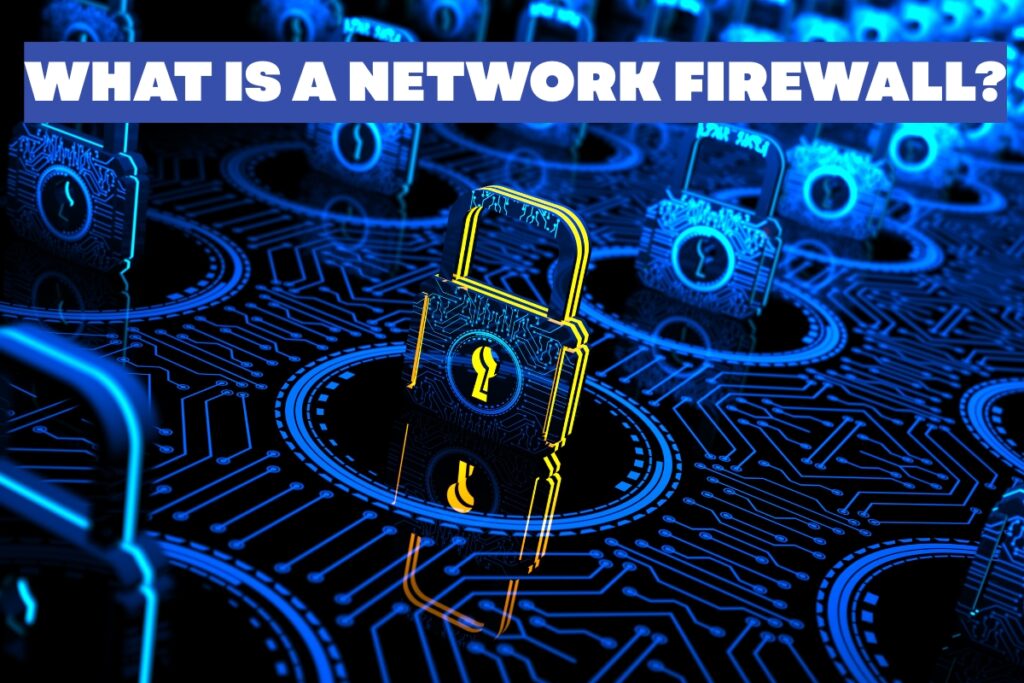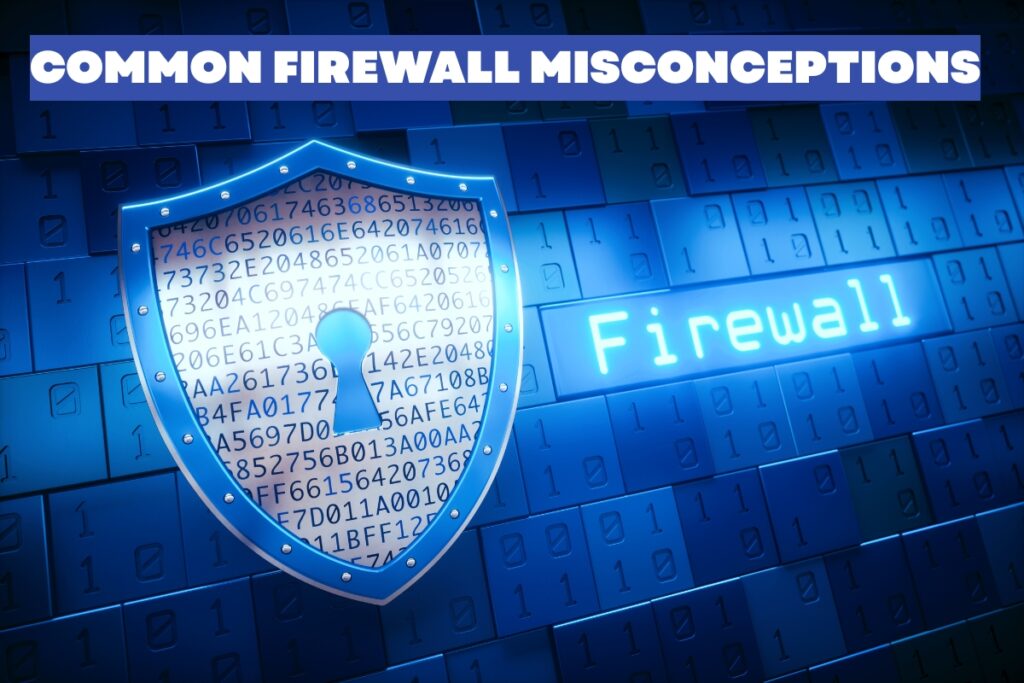Ever wondered what keeps the chaos of the internet from spilling directly into your business systems?
That invisible barrier protecting your sensitive data from the thousands of cyber attacks happening every day?
It’s your firewall – and if you don’t have a proper one, your business is essentially operating with its digital doors wide open. The reality is sobering: unprotected networks can be compromised within minutes of connecting to the internet. According to Cybersecurity Ventures, businesses face cyber attacks every 11 seconds, and that frequency is only increasing as hackers deploy more sophisticated and automated tools.
Let’s explore the critical network firewall security benefits that protect your business from these constant threats.
What Is a Network Firewall and What Does It Do?

A network firewall is a security system that sits between your business network and the internet, monitoring all traffic attempting to enter or leave. It examines data packets, checks them against security rules, and makes split-second decisions to allow or block traffic based on factors like source, destination, and content.
Think of your firewall as your network’s security guard, checking the ID of everyone trying to enter or exit, and only allowing authorized visitors to pass. Modern firewalls do far more than simple traffic filtering – they include intrusion prevention, malware detection, application control, and web filtering, providing comprehensive protection. The primary value of a firewall is serving as your first and most critical line of defense. Without it, hackers, malware, and unauthorized users could directly access your internal systems.
As explained in our Importance of IT Services guide, this foundational security is essential for any business connected to the internet.
Why Every Business Needs a Firewall: The Core Value
Your business faces a constant barrage of cyber threats attempting to breach your network:
- Hackers continuously scan the internet for vulnerable systems
- Automated attacks try thousands of access attempts per hour
- Ransomware constantly seeks entry points to encrypt your data
- Data thieves target your confidential business and client information
Without proper firewall protection, your network is directly exposed to these threats. There’s no barrier preventing them from reaching your servers, workstations, and sensitive data.
It’s like removing all the locks from your office doors and hoping nobody walks in and takes your valuable equipment.
The sobering reality?
An unprotected network can be compromised in minutes. The advantages of firewall protection make the difference between secure business operations and potentially business-ending security incidents. This is why understanding the 10 reasons why cybersecurity is important is critical for business leaders today.
Key Network Firewall Security Benefits
Firewalls provide several essential security benefits that protect your business:
Prevents Unauthorized Network Access and Intrusions
Firewalls block unauthorized attempts to access your network, examining incoming connections and rejecting anything not explicitly allowed by your security policies. This stops attacks before they reach vulnerable internal systems. For law firms, this means blocking hackers attempting to access confidential case files. For healthcare practices, it prevents unauthorized access to systems containing patient records.
Without this protection, anyone on the internet could potentially connect directly to your business systems.
Blocks Malware, Ransomware, and Malicious Traffic
Modern firewalls include threat intelligence and intrusion prevention capabilities that detect and block known malware, ransomware, and malicious websites before they can infect your network.
| Threat Type | How Firewalls Protect |
| Ransomware | Blocks malicious downloads and command-and-control communications |
| Malware | Examines traffic for known signatures and suspicious patterns |
| Phishing | Prevents access to known fraudulent websites |
| Botnet Infections | Stops communication with botnet control servers |
This protection is critical considering that a single ransomware infection can paralyze business operations for days or weeks, potentially costing hundreds of thousands in ransom payments or recovery expenses.
Protects Sensitive Business and Client Data
One important benefit that a firewall can provide is preventing unauthorized data exfiltration – stopping attacks that attempt to steal confidential information from your network.
Firewalls can:
- Block suspicious outbound connections
- Monitor for unusual data transfers indicating potential breaches
- Enforce policies preventing certain data types from leaving the network
This protection is particularly vital for businesses handling sensitive information subject to regulations like HIPAA, PCI DSS, or professional ethics requirements.
The relationship between data security vs cybersecurity makes firewalls essential for both protecting your systems and the data they contain.
Enables Secure Remote Access for Employees
Firewalls provide VPN functionality, allowing employees to securely access business systems from remote locations. They create encrypted tunnels protecting data transmitted between remote workers and office networks, authenticate users before granting access, and extend your security perimeter to include remote connections.
In today’s hybrid work environment, this capability is essential for maintaining security while enabling flexible work arrangements. Proper firewall configuration ensures your data backup and recovery in cloud computing remains protected even when accessed remotely.
Supports Regulatory Compliance Requirements
Many regulations require businesses to implement network security controls, including firewalls:
- HIPAA requires healthcare practices to use firewalls to protect patient data
- PCI DSS mandates firewalls for businesses processing payment cards
- ABA ethics opinions require law firms to implement reasonable security measures
Firewall implementation provides documented security controls demonstrating due diligence during compliance audits, helping avoid fines and sanctions from regulatory violations.
What Is the Primary Value of a Firewall?
To directly answer “what is the primary value of a firewall?” – it provides comprehensive network perimeter defense, acting as the critical security barrier between your trusted internal network and the untrusted internet. While firewalls offer many benefits, their core value is preventing unauthorized access and network intrusions that would otherwise lead to data breaches, ransomware infections, and business-disrupting security incidents.
They represent foundational security – you simply cannot have adequate cybersecurity without properly configured firewall protection. Understanding common what is an insider threat cyber awareness concerns complements firewall protection by addressing both external and internal security risks.
Not All Firewalls Are Equal: Why Enterprise Protection Matters
Many small businesses mistakenly believe their internet router provides adequate firewall protection. The reality? These consumer devices offer minimal security compared to business-grade firewalls.
Enterprise firewalls provide critical advantages:
- Advanced threat detection capabilities
- Intrusion prevention systems block sophisticated attacks
- Regular security updates addressing new threats
- Centralized management for business networks
- Detailed logging for security monitoring and incident investigation
- Vendor support and security expertise
For professional services firms handling sensitive data, these advanced capabilities aren’t optional. A basic router firewall might fail to detect ransomware downloads, doesn’t block sophisticated attacks, lacks proper logging for investigation, and can’t support secure remote access needs.
Understanding data security risks helps clarify why enterprise-grade firewalls are essential for businesses with valuable data to protect.
Common Firewall Misconceptions That Leave Businesses Vulnerable

Dangerous assumptions about firewalls create security gaps that lead to breaches:
- Believing Windows Firewall or router provides adequate protection for business networks
- Assuming that once configured, firewalls require no ongoing management
- Thinking firewalls alone provide complete security without other controls
- Not monitoring firewall logs and missing critical security alerts
- Using default configurations without customization for business needs
The reality is that firewalls require proper initial configuration, regular updates, ongoing monitoring, and integration with a comprehensive security strategy.
“Set it and forget it” approaches invariably lead to security failures.
How to Maximize Firewall Security Benefits
To ensure you’re getting full protection from your firewall:
- Deploy enterprise-grade firewalls appropriate for business needs
- Ensure proper configuration based on security best practices
- Implement regular security updates and firmware patches
- Actively monitor logs and alerts for security events
- Configure appropriate policies for your industry and compliance requirements
- Conduct periodic rule reviews, removing unnecessary access
- Integrate your firewall with comprehensive security, including enterprise data encryption
Firewalls provide maximum protection when properly configured and actively managed—not just installed and forgotten. Professional management ensures you receive the full security benefits while avoiding the common configuration mistakes that create vulnerabilities.
Frequently Asked Questions
What happens if you don’t have a firewall?
Without a firewall, your network is directly exposed to the Internet. Hackers can directly access your systems, malware can freely enter your network, and sensitive data can be easily stolen. Unprotected networks are typically compromised within minutes of connecting to the internet.
Do small businesses really need enterprise firewalls?
Yes. Small businesses face the same threats as larger organizations but often have fewer resources to recover from breaches. Consumer-grade firewalls lack the advanced protection, management capabilities, and security updates needed for business environments, especially those handling sensitive data.
How much does a business firewall cost?
Business firewall costs range from $500-$3,000 for hardware plus ongoing management. While this might seem significant, compare it to the average data breach cost of $4.45 million or typical ransomware recovery costs of $1.85 million, according to IBM’s research.
Can firewalls prevent all cyber attacks?
No. Firewalls are a critical first line of defense, but comprehensive security requires additional layers, including endpoint protection, security monitoring, user training, and network availability monitoring.
Wrapping Up
Network firewall security benefits extend far beyond basic protection – they provide the essential foundation upon which your entire security strategy is built. Without proper firewall protection, your business faces constant exposure to threats that could compromise your data, operations, and reputation.
Ready to ensure your business has the firewall protection it needs? Contact Rekall Tech today for a comprehensive security assessment that will identify vulnerabilities and implement protection tailored to your specific business needs.


